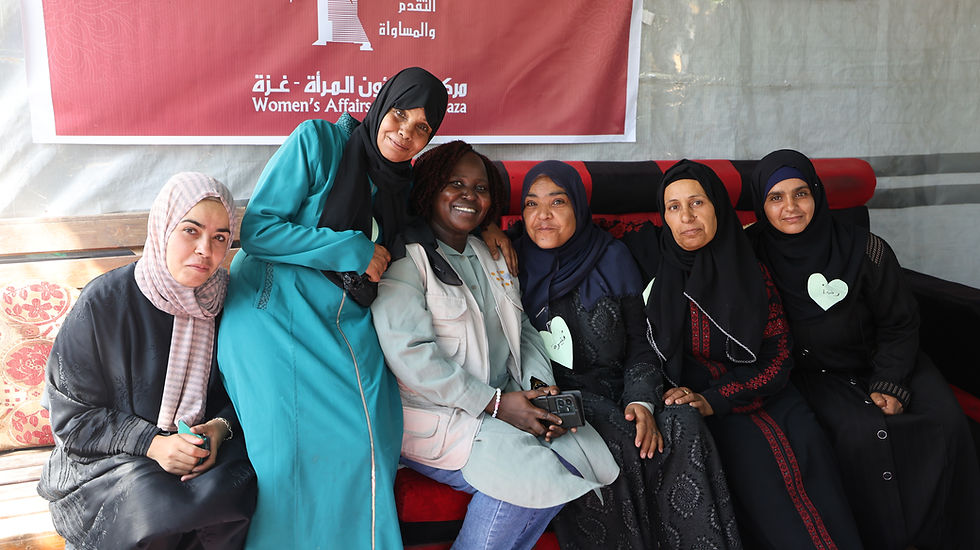WFP SBP Stories: Tiziana Oliva, Disability Inclusion Officer (Lebanon)
- Standby Partnership Network

- Mar 14, 2023
- 2 min read
Updated: Dec 7, 2023
Since 1991 WFP collaborates with a vast network of Standby Partners consisting of public and private organizations complementing WFP’s operational capacity by providing staffing, equipment, and services. Standby Partnerships are activated in various job positions and provide crucial support to WFP operations in emergencies or when WFP needs specific technical expertise. In 2021, 104 experts supported 37 Country Offices, 5 Regional Bureaux, and Headquarters. To request and deploy experts Standby Partners please reach out to WFP Standby Partnerships team in the Emergency Operations Division at: standbypartners@wfp.org.
Lebanon is undergoing a series of overlapping crises on the political, economic and social front, compounded by the effects of COVID-19 pandemic and the devastating blast in the port of Beirut in 2020. Tiziana Oliva, a seasoned Disability Inclusion Officer, is seconded to WFP Lebanon by RedR Australia for a 2-year assigment expected to ensure humanitarian action is more inclusive of people living with disability. Read her full story on RedR Australia’s website.

Tiziana’s primary role is leading the development of a disability inclusion plan for WFP’s Country Office in Lebanon, encompassing the next three years. Part of Tiziana’s work has been to conduct an environmental scan, analysing barriers encountered by persons with disabilities, to improve accessibility to WFP’s assistance for both Lebanese nationals and refugees.
According to the UNHCR, Lebanon is host to one of the highest number of refugee populations per capita worldwide, with the government estimating 1.5 million Syrian refugees and 13,715 refugees of other nationalities. In addition, 90 per cent of Syrian refugees in Lebanon are living in extreme poverty.
Tiziana explains that, “WFP has been clear about their initial aim of responding to the Syrian refugee crisis in Lebanon, by providing life-saving assistance to refugees in the country since 2012. Since then, WFP’s role has expanded, ensuring that both Lebanese and refugees have access to essential needs, including sufficient nutritious food throughout the year. WFP Lebanon also provides technical assistance and capacity strengthening support to the Government of Lebanon.”
Having visited food distribution points in Tripoli District in the North Governorate, Tiziana has been able to support staff and WFP partners with guidance on how to provide accessible services while liaising with local Organisations of Persons with Disabilities.

According to the United Nations, more than one billion people, or approximately 15 per cent of the world’s population, live with some form of disability; 80 per cent of whom reside in developing countries. Many persons with disabilities, especially refugees, face challenges in accessing essential services and support, meaning they are more likely to experience poverty and high levels of marginalization.
Data collection, like the work Tiziana is doing, is an essential and effective method of understanding the scale and need, so no one is left behind. Counting all people and recording who needs better access to essential nutritious food is an important step to understand how to affect change.
Like many communities in crisis, more support is needed to help persons with disabilities have access to the tools they need to fully participate in their communities. Tiziana believes that, “Targeted transformational interventions that support a change in perceptions and attitudes towards persons with disabilities is needed, so they are seen as rights holders and active participants in society.”




Comments